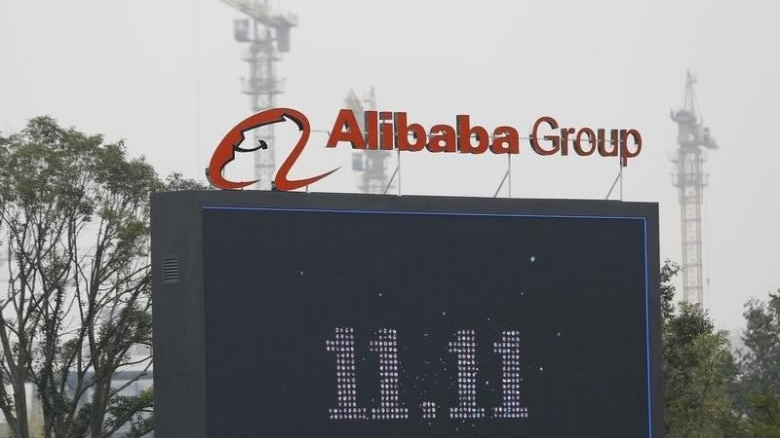
A sign of Alibaba Group. /AFP
A sign of Alibaba Group. /AFP
Editor's note: Matteo Giovannini is a finance professional at the Industrial and Commercial Bank of China in Beijing and a member of the China Task Force at the Italian Ministry of Economic Development. The article reflects the author's views, and not necessarily those of CGTN.
China's State Administration for Market Regulation (SAMR) strikes once again against internet platforms in an attempt to preventing them from exploiting their dominant position in the domestic market to conduct practices that could lead to the obstruction of fair competition.
In a statement released on April 10, the Chinese regulator accused Alibaba Group Holding Ltd. of abusing its market dominance and punished it with a record fine of 18.23 billion yuan (about $2.78 billion).
The Hangzhou-based firm is accused to have been squeezing out competition since 2015 by demanding Chinese merchants to sell, without a contractual exclusivity clause, on its e-commerce platform instead of being free to choose alternatives, such as Pinduoduo or JD.com.
This "pick one out of two" requirement, according to the SAMR, restricted competition among online retail platforms and infringed the legitimate rights of the merchants, at the same time hurt consumers' interest.
The first consideration to make here is that the decision by the country's top market regulator represents a dramatic acceleration in China's declared commitment to ensure fair competition in the market after some technology companies have accumulated an unreasonable amount of power over the last few years.
In this sense, the resolution reflects the next stage of a campaign started in November 2020 with the release of a draft aimed at requesting feedback from the public on the possibility of stricter regulations against anti-competitive practices. It continued with December's decision to fine some of the largest technology companies for failing to disclose the acquisition of smaller competitors.
If the penalties imposed on major tech firms in late 2020 were considered pretty symbolic, compared to the concrete benefits these companies had received from an increased market concentration, this time the punishment has assumed serious proportions that corresponds to 4 percent of Alibaba's 2019 domestic revenues.
The four-month investigation conducted by SAMR has led to a decision that represents a landmark in the future of China's antitrust ruling due to the definition of a specific metric, a fixed percentage on the yearly sales of the previous year, for committing a market violation of this kind.
The initiative made by the regulator on Saturday is believed to represent a seismic moment in the government's effort to crackdown on abusive market behaviors and, in this way, it could trigger a more cautious conduct from other companies operating in the same business segment.

Cashless payment has become very popular on the Chinese mainland. /VCG
Cashless payment has become very popular on the Chinese mainland. /VCG
In this respect, China is demonstrating through its action that it is committed to find concrete solutions to the dominance that tech firms have in the society by creating a business environment that is more ethical, transparent and fair. At the core of these actions is consideration for the interests of small and medium enterprises (SMEs) as well as consumers that are could become the victims of a business ecosystem that does not protect them enough.
Chinese tech giants should always bear in mind that their infrastructure would mean nothing without the presence of merchants willing to commercialize their products on the market and consumers eager to open their wallets and make purchases.
It has to be underlined that China's leadership is well aware of the growing importance that technology and innovation have assumed in the economy, as they serve as major contributors of national gross domestic product in the age of COVID-19. However, it is also true that technological development requires a high level of supervision and guidance to avoid market distortions that are a natural consequence when so much power is held by few market players.
It is thus of paramount importance for China to find the right balance between a demonstration of firmness through punishing violators and preservation of a model of incentives that allows tech firms to continue to innovate and invest large amounts of capital in the economy.
A higher degree of communication, transparency and recognition of the importance of the government as a supervisor will not only secure a safe and prosperous future of tech firms but also ensure a more equitable and stable market environment where each stakeholder has its interests protected.
The abuse of power by tech giants is a global issue. The rest of world, sooner or later, could face the same dilemma. They should be humble enough to take the chance to carefully observe China's experience and perhaps use it as a learning tool on dealing with probably the greatest challenge of our century.
(If you want to contribute and have specific expertise, please contact us at opinions@cgtn.com.)

